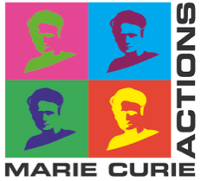BCMolMed - Molecular Medicine for Bladder Cancer
BCMolMed is a European research project integrating multi-disciplinary expertise from academic and industrial investigators. Special emphasis is placed on the application of state of the art proteomics and bioinformatics techniques to clinical research. Research is applied to the identification of biomarkers and molecular determinants of bladder cancer recurrence and invasiveness, due to its clinical significance, availability of molecular data.
Another objective of BCMolMed is training young scientists to become true translational multidisciplinary researchers, understanding hurdles of biomarker discovery, validation and implementation, focusing on the application of state of the art -omics technologies to investigate significant research questions; training in identifying and testing candidate molecules, and training in systems biology approaches applied to decipher molecular pathology and understanding clinical phenotypes.
Seven partners have joined to provide complementary knowledge on molecular biology techniques, systems biology, and clinical samples. Three recruited early stage researchers (ESRs) will be well trained in all needed skills for cross-discipline communication to meet the challenges of the systems biology era.
The team of BCMolMed consists of specialists from five European countries contributing their vast experience in cancer research. A short description of the partners can be found here.
- The main objectives of BCMolMed are:
- Identifying and testing candidate molecules involved in bladder cancer invasiveness and patient stratification
- Understanding the molecular determinants of bladder cancer cell invasion through systems biology
- Training young scientists in state of the art proteomics technologies and latest methodologies as applied to investigate a very significant research question: cancer cell invasion.
In order to achieve these objectives the partners will provide knowledge on molecular biology techniques, bladder cancer clinical samples and clinical phenotyping, towards generating efficient academic researchers and entrepreneurs alike, well equipped with all the needed skills for cross-discipline communication to meet the challenges of the “systems biology” era.
While there is a continuously increasing demand for scientists specialized in the fields of omics research and systems medicine, this need can generally not be met. BCMolMed provides the unique opportunity to train young researchers not only in the different contemporary proteomics approaches, but also in -omics data evaluation, combining of datasets from different omics traits, and exploiting both, data and literature, to enable the generation of in silico models of the molecular pathology of specific diseases.
Full participation and integration of partners will be achieved by a comprehensive network training programme for the 3 recruited early stage researchers (ESRs); this consists of a structured curriculum involving individual research projects, secondments between partners, training courses, workshops, webinars, meetings and retreats.
BCMolMed will also lead to more effective tools for patient stratification in bladder cancer and a better understanding of molecular determinants of cell invasion.
